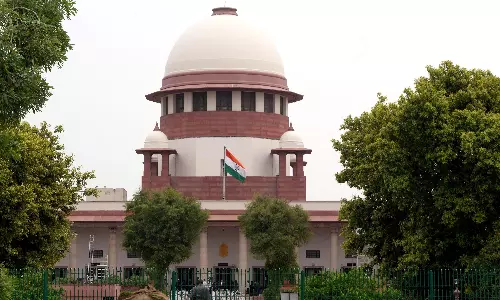Fresh hope of reforms, but a lot still uncertain
Modi is lucky that the Opposition is in disarray and there is no little sign of them being able to mount a major challenge.

The changes proposed by Prime Minister Narendra Modi, including shifting the financial year from April-March to January-December, hailing the long, medium and short-term plans produced by the Niti Aayog and the furtherance of “cooperative federalism” though the Goods and Services Tax has sparked hopes of reforms actually being undertaken as the PM is a man of action and does what he says. This must be qualified, however, as the PM too depends on the bureaucracy to implement his programmes, and therein lies the pitfalls. One hopes he will make them accountable, though it is unfortunate he hasn’t been able to galvanise his partymen to start implementing his vision. This will probably happen gradually as the BJP realises it is winning elections only on the strength of Mr Modi’s charisma and vision. This charisma can’t last forever unless backed by solid work nationally. There are already signs of disillusionment on the horizon, and it will be prudent for him to heed this. Mr Modi is lucky that the Opposition is in disarray and there is no little sign of them being able to mount a major challenge. But politics is a fickle mistress, and no one can be written off forever.
The need for plans of varied timelines, such as five, 10 and 15 years, seems less important as both the past and present indicate that plans, like new year’s resolutions, are made only to be broken. It just gives a good feeling of accomplishing something. In the case of the calendar year, it means getting rid of a centuries-old colonial British practice. Interestingly, the British followed the April-March accounting year in deference to the agricultural year when agriculture was taxed. Now that agriculture is not taxed, there’s no need for such an accounting year, but there could be a separate budget for agriculture given that a sizable population depends on it.
There doesn’t appear to be anything radically different from the old Planning Commission and its new avatar, from the information that is now available. Both have projections that often remain a pie in the sky. Rajasthan’s chief minister was right when she said the role of the Niti Aayog should be that of a think tank on development and social issues, so that states can benefit from its expertise. Hopefully, the Aayog will take the concern of the state governments into consideration in the true spirit of federalism.
The main issues facing this country are productive development, housing and employment, and it is not very clear how the Niti Aayog has dealt with these in the fine print. Mr Modi had in his electrifying election speeches talked of creating millions of jobs annually. However, the reality is very different, and distressing, and he needs to bring this back into focus.


